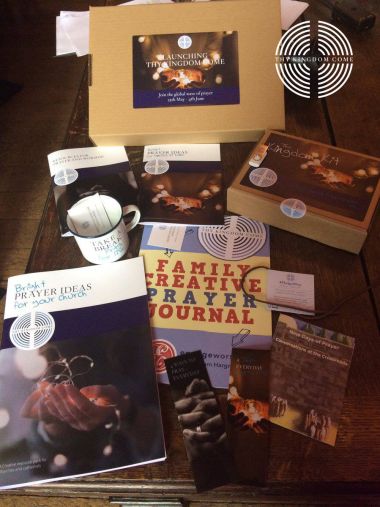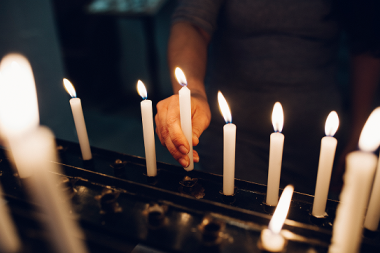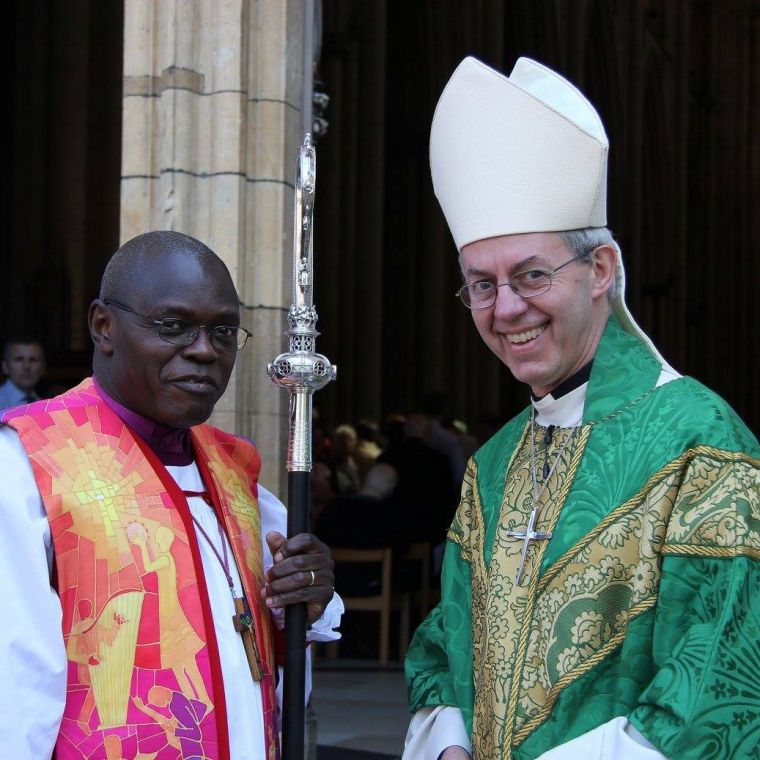Will 'Thy Kingdom Come' fill the churches? Wrong question, says the Archbishop of Canterbury
Thy Kingdom Come is an extraordinary thing. It started in a small way last year, but this year the initiative aimed at involving Christians in prayer for conversions has exploded, sometimes literally; one church let off a rocket as a way of symbolising the ascent of their prayers to heaven. It's the same idea as incense, though a lot more dramatic.

The event began on Ascension Day last week and is due to finish on Sunday, Pentecost. It has drawn in hundreds of thousands of people across the world, in 85 countries. On social media it has reached more than 3 million people. No fewer than 35 Church of England cathedrals are participating; Norwich, for instance, distributed candles to 400 parishes that committed to praying. Daily vidoes have been viewed 2 million times and almost 300,000 resource packs have been ordered.

There's no doubt that it's caught people's imaginations. But what's behind it, and how should we assess its worth?
It's the brainchild of the Archbishop of Canterbury, Justin Welby. He spoke to journalists at Lambeth Palace this morning of his own reaction to the surprising enthusiasm for the project. 'For me it is a renewal of a sense of the faithfulness of God,' he said. 'We went into this last year expecting something small and low-key and it acquired a lot of momentum, and we expected this year to be much the same. But somehow the act of Christians turning to God within their own traditions seems to have liberated a renewal of prayer on a global basis.
'And [there's] that sense of God demonstrating that when we turn to him in Christ we are embraced more warmly than we could begin to imagine.'
For him, giving permission to Christians to do things their own way has been crucial. The days when the Church of England could issue diktats instructing people how to do things have gone. Partly due to lack of resources from the centre, churches have been liberated to be creative. So Welby speaks of the 'enabling of a vision that touches people's imagination without being too prescriptive about how to live it out'.
Another of the strengths of Thy Kingdom Come perhaps lies in the title itself, which lends itself – as Welby is eager to stress – to more than just evangelism. That provided the initial impetus to the initiative and is still at its core, but he says churches are praying – and acting – far more widely than that. God, he says, 'prods you into something more expansive'. When people start praying, he says, 'they don't separate out the witness to the good news of Jesus Christ from the witness through action, through prayer for the world, particularly after Manchester. And so it's become very much more holistic, so there's a real Kingdom theology in there as well as a clear missiology.'
But at its root, this is a movement of prayer for conversions. While there are good and encouraging stories to tell of conversions and growth, the fact remains that in the UK at any rate, many churches are in a parlous state. They have seen years of decline, aging congregations and indifference among their communities. And though it's easy to feel, in the midst of a purposeful and engaging campaign like Thy Kingdom Come, that the tide can be turned and the churches can be filled again, the reality on the ground looks rather different. So should the campaign be judged not just on how good it makes people feel, but on whether these prayers for conversion are actually answered?
It is, he acknowledges, a fair question – but the answer, while thoughtful and entirely honest, is not altogether straightforward.

The numbers engaged are not a test for success, he says. 'We simply start by saying, is there something to celebrate in people's involvement? Because celebration is very much part of the Christian tradition. And yes, there's a lot to celebrate. It doesn't mean it's a success, it means there's a lot to celebrate. That people are engaging with God in prayer is good news.'
But does it work? 'The nature of prayer is that in prayer we are changed by engagement with God. In God's extraordinary grace and love and kindness through Jesus Christ we see the world changed when we pray. Now how that happens or in what ways that happens – I think there's a million different answers.
'One of the ways is that people are stirred up to pray and then when they pray they are stirred up to act by the fact that they've been touched by the Spirit of God as they prayed.' He instances Isaiah 6, where the prophet recounts a vision of God and responds by saying, 'Here am I, send me.'
Second, he says, 'we are very clear that we are praying for people to come to faith in Christ. When and how is partly in the hands of God because it's the work of the Holy Spirit, not our work that opens people's eyes to the love of God in Jesus Christ, but partly in our hands because we then need to be clear, sensitive, loving witnesses to Jesus Christ in the way we behave.
'But how people and when people come to faith, who knows? And we will wait and see what happens. But we can do do no more as the Church than encourage and enable and facilitate people to meet with Jesus Christ through the Spirit, called by the Father, and then encourage them to respond by loving action in service to the world and witness to Jesus Christ. Then frankly, the rest is God's problem.'

One of the tasks of the Archbishop of Canterbury – particularly an archbishop in our times – is to be a bringer of hope to the Church. Often that means articulating, carefully and credibly, the reasons why it makes sense to keep behaving like Christians, and – for instance – putting imagination and creativity, time and energy, into such an apparently unproductive activity as prayer. Welby's initiative – and the measured, thoughtful way in which he is able to defend its rationale and make it seem not just reasonable but essential – is an indication of his ability to connect faith with real, lived experience.
Thy Kingdom Come has created a remarkable mosaic of spiritual activity. Prayer labyrinths, 24-hour prayer session, candlelit prayer, prayer balloons and kites, street parties, psalm drumming, prayer tepees – there's seemingly no end to the creative energy that's been unleashed. Will it work, in terms of converting people? That's both the point and not the point: we want it to and we're praying it will. But, in Welby's words, that's God's problem.
Follow Mark Woods on Twitter: @RevMarkWoods











